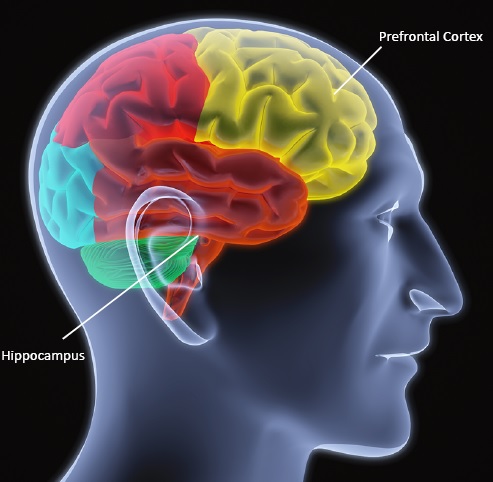Deborah Archibald, health and wellbeing specialist at RSSB, shares her tips for keeping your brain healthy into old age.
The brain is the most complex organ in our bodies and weighs almost three pounds – about the same as four soup cans. It needs more oxygen than any other organ and uses almost 30% of our body’s stores of glucose.
What we eat, stress, difficulty sleeping, shift work, an inactive lifestyle, alcohol, some medications and head trauma can all affect our brain. Simple lifestyle changes can help keep your brain in the best of health.
Food for thought
What you eat directly affects how your brain performs, and the same diet and lifestyle advice applies to the brain as to the body.
Some simple ways to improve your brain health with your diet are:
- Cut back on sugar. Choose complex carbohydrates like whole grains and vegetables over simple carbs like white bread, pasta, rice and sugary foods like cakes, biscuits and breakfast cereals.
- Have regular meals. Our brains need a steady fuel supply. Skipping meals, long gaps between eating and irregular eating patterns can affect the way the brain is fuelled.
- Drink more water and fewer fizzy and sugary drinks. Water is the best way to rehydrate. Sugary drinks have ‘empty calories’ with almost no nutritional value and are very high in sugar. Swapping to low-calorie or zero-calorie fizzy drinks is not a healthy alternative either. Chemicals in artificial sweeteners can interfere with how your brain transmits signals and therefore impair brain function.
- Drink less coffee. Caffeine is a stimulant and can give the brain a short-term boost, but drinking a lot of caffeine throughout the day can decrease your brain’s sensitivity to signals from your body and result in less energy and poor concentration.
- Eat food for the brain. A varied diet of whole foods including plenty of fruit and vegetables will help you get the nutrients that support brain health. Getting enough of the ‘good’ fats in oily fish, nuts and seeds is essential, as they help the brain to communicate throughout the body and adapt to new information.

Get physical
The brain needs a steady flow of blood to supply oxygen. Physical exercise can make your brain work better because it raises the heart rate and gets the blood pumping to deliver more oxygen to the brain. Working the muscles in the body can boost brain function by improving concentration and memory and, over time, can even alter the structure of the brain.
Two 20-minute bouts of moderate intensity activity a day significantly improves attention span. Moderate intensity activity is anything that raises your heart rate above resting levels but where you can still hold a conversation – brisk walking, mowing the lawn, social dancing, easy cross-trainer or jogging sessions.
- Sit up straight. Sitting hunched over restricts the blood flow to the brain.
- Get up and move regularly. Just moving for 10 minutes at a time can be beneficial.
- Go for a walk after lunch. Or get off the train or bus a stop early to walk to or from work after the Covid-19 restrictions end.
- Use the stairs not the lift.
- Stand up and stretch a few times a day. Put a reminder in your diary or on your phone.
- Find a regular physical activity you enjoy. You are more likely to make it a habit if you enjoy it.
Use it, don’t lose it
It is a common misconception that as we age, we inevitably get more forgetful and our brains will work less well. The brain cannot regenerate cells as readily as other organs in the body. But the brain is clever at learning new ‘routes’ for processing information, which can keep it in good shape. The brain thrives on stimulation, especially from activities that use the ‘thinking’ part of it. Here are some ideas for how to stimulate your brain:
- Train your brain by doing regular crossword or Sudoku-style puzzles, do a jigsaw puzzle or play games designed to solve problems.
- Learn a new skill, activity or language.
- Get creative. Use all your senses – learn to cook a new dish from scratch, engaging smell and taste; take up a craft like model making, pottery or sewing, which uses touch; or learn to play a musical instrument.
- Change up day-to-day tasks to challenge the brain e.g. try writing with the ‘wrong’ hand, use chopsticks to eat or read aloud.
Regularly repeating a task or activity reinforces the brain’s communication pathways and makes the activity quicker and easier each time. The brain also works best focused on one task at a time. Contrary to popular myth, it isn’t good at multi-tasking. When it is ‘multi-tasking’, it is actually changing focus repeatedly between different tasks. Set aside chunks of time to devote to one task before moving on to the next.
Although the brain has many amazing abilities, it needs us to be proactive about keeping it healthy. Simple lifestyle and behaviour changes can really benefit our brains and overall health in the long run. When it comes to looking after the brain, prevention is better than cure.
How diet affects your brain
Your brain needs glucose – or ‘blood sugar’ – as fuel. If there is not enough glucose to fuel the brain you might have less concentration or experience fatigue and brain fog. Too much glucose can also be a problem. Sugary foods, such as sweets, cakes or biscuits and highly processed carbohydrates, such as white bread, pasta or rice cause glucose levels to rise rapidly in the body. Then your body must produce more of the hormone insulin to reduce the glucose to a safe level.
Over time, a highly sugary, processed diet causes the body to lose sensitivity to insulin’s regulation of glucose. This is called ‘insulin resistance’. It means there is too much glucose for your body to process and not enough of it to use for energy.
Insulin resistance is a precursor to Type 2 diabetes and can make it more difficult for the brain to function at its best. In people with diabetes, a high blood sugar level leads to inflammation in the body. This may damage brain cells and increase the risk of Alzheimer’s disease.
When a diabetic person’s blood sugar reaches a significantly high or low level, their body sends immediate signals that result in sudden energy crashes, behaviour changes, confusion and seizures. In contrast, with Alzheimer’s disease, the brain’s function and structure decline gradually.
Understanding your brain

The brain and spinal cord make up the central nervous system. Neurons – or nerve cells – are the basis of your body's nervous system and help to transmit signals, including to and from your brain.
As people get older they may struggle with tasks they used to complete without difficulty, and experience changes in day-to-day memory, planning capability, punctuality, language and attention span. These are signs of what is called mild cognitive impairment, when your brain is not working at its best.
A decline in problem-solving skills, processing information or forgetting instructions may be early signs. Cognitive impairment may also be due to fatigue or stress.
Two areas of the brain are mainly affected: the prefrontal cortex and the hippocampus (see image). The prefrontal cortex is involved in reasoning and impulse control, emotional drive, motivation and planning. The hippocampus is involved in memory and learning.
Tags
- Health and Wellbeing
- Fatigue
